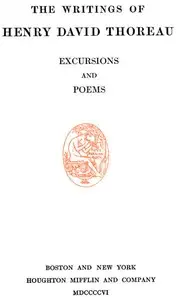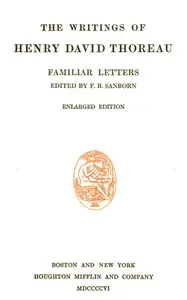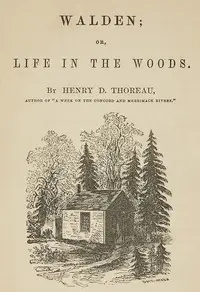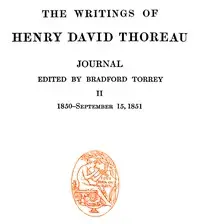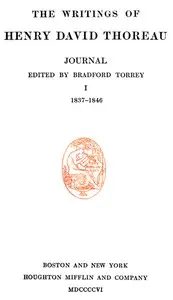"Henry D. Thoreau" by F. B. Sanborn is a biography that gives an overview of the life of Henry D. Thoreau, focusing on his philosophy, relationships, and impact on both literature and the environment. It opens with an exploration of Thoreau's family history, explaining his parents' backgrounds and how they shaped his childhood, portraying him as someone with varied and intellectual roots which influenced his writings and beliefs. Sanborn's biography gives the reader a broader view of Thoreau's combination of love for nature and transcendental ideas.

Henry D. Thoreau
By F. B. (Franklin Benjamin) Sanborn
Discover the life of a famous writer and thinker whose upbringing and family influenced his love for nature and unique ideas.
Genres
Released
2016-03-12
Formats
epub3 (images)
epub
epub (images)
mobi (images)
mobi
txt
Free Download
Summary
About the AuthorFranklin Benjamin Sanborn was an American journalist, teacher, author, reformer, and abolitionist. Sanborn was a social scientist and memorialist of American transcendentalism who wrote early biographies of many of the movement's key figures. He founded the American Social Science Association in 1865 "to treat wisely the great social problems of the day." He was a member of the so-called Secret Six, or "Committee of Six", which funded or helped obtain funding for John Brown's Raid on Harpers Ferry; in fact, he introduced Brown to the others. A recent scholar describes him as "humorless."
Franklin Benjamin Sanborn was an American journalist, teacher, author, reformer, and abolitionist. Sanborn was a social scientist and memorialist of American transcendentalism who wrote early biographies of many of the movement's key figures. He founded the American Social Science Association in 1865 "to treat wisely the great social problems of the day." He was a member of the so-called Secret Six, or "Committee of Six", which funded or helped obtain funding for John Brown's Raid on Harpers Ferry; in fact, he introduced Brown to the others. A recent scholar describes him as "humorless."
Total Reviews
10.0k
Total reviews from Goodreads may change

